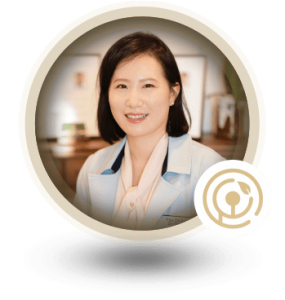Introduction:
The postpartum period, often referred to as the “fourth trimester,” is a time of immense physical and emotional changes for new mothers. Chinese herbal medicine, with its centuries-old tradition, offers a holistic approach to postpartum care that focuses on rejuvenating the body, balancing hormones, and promoting overall well-being.
In this blog, we will explore the principles and practices of Chinese herbal medicine in postpartum care.
Understanding Postpartum Care in Chinese Medicine:
In Chinese culture, the postpartum period is considered a critical time for a new mother’s recovery and long-term health. This period typically spans the first 30 to 40 days after childbirth and is known as “zuò yuè zi,” which translates to “sitting the month.”
Chinese herbal medicine plays a central role in this practice, aiming to restore a mother’s Qi (vital energy), nourish her body, and strengthen her overall health.
Key Principles of Chinese Herbal Medicine in Postpartum Care:
- Qi and Blood Tonification: After childbirth, a woman’s body is considered deficient in Qi and Blood due to the energy expended during pregnancy and labor. Chinese herbal formulas often include ingredients like ginseng, astragalus, and dang gui (Chinese angelica root) to replenish these vital elements.
- Hormonal Balance: Chinese herbal medicine aims to balance the hormonal fluctuations that occur postpartum, helping to regulate menstruation and alleviate mood swings.
- Nourishing the Spleen and Stomach: Digestive health is crucial during the postpartum period. Herbal remedies may include herbs like poria and coix seed to support healthy digestion.
- Kidney and Liver Support: The Kidney and Liver meridians play a vital role in reproductive health. Chinese herbal medicine can help restore balance to these systems, benefiting a new mother’s overall vitality.
Common Chinese Herbal Remedies in Postpartum Care:
Several Chinese herbs and formulas are commonly used in postpartum care:
- Sheng Hua Tang: This herbal formula is used to help the uterus contract and expel any remaining blood and tissue after childbirth.
- Dang Gui Shao Yao San: Known for its ability to nourish Blood and ease pain, this formula can be beneficial for postpartum discomfort.
- Si Wu Tang: Often prescribed to enhance Blood and Qi, this formula can help boost energy levels and alleviate fatigue.
- Zuo Gui Wan: This formula is used to tonify the Kidneys and is particularly beneficial for women who have given birth later in life.
- Yin Yang Huo (Epimedium): This herb is known for its ability to enhance libido and sexual function, which can be beneficial for postpartum intimacy.
Consulting a Traditional Chinese Medicine Practitioner:
It’s essential to consult a qualified Traditional Chinese Medicine (TCM) practitioner or herbalist before incorporating Chinese herbal remedies into your postpartum care plan. They can assess your individual needs, create personalized herbal formulas, and monitor your progress to ensure a safe and effective recovery.
Conclusion:
Chinese herbal medicine offers a time-tested approach to postpartum care that focuses on nurturing the physical and emotional well-being of new mothers. By embracing the principles of TCM and working with knowledgeable practitioners, women can experience a smoother and more rejuvenating postpartum period, setting the stage for a healthy and vibrant future.






